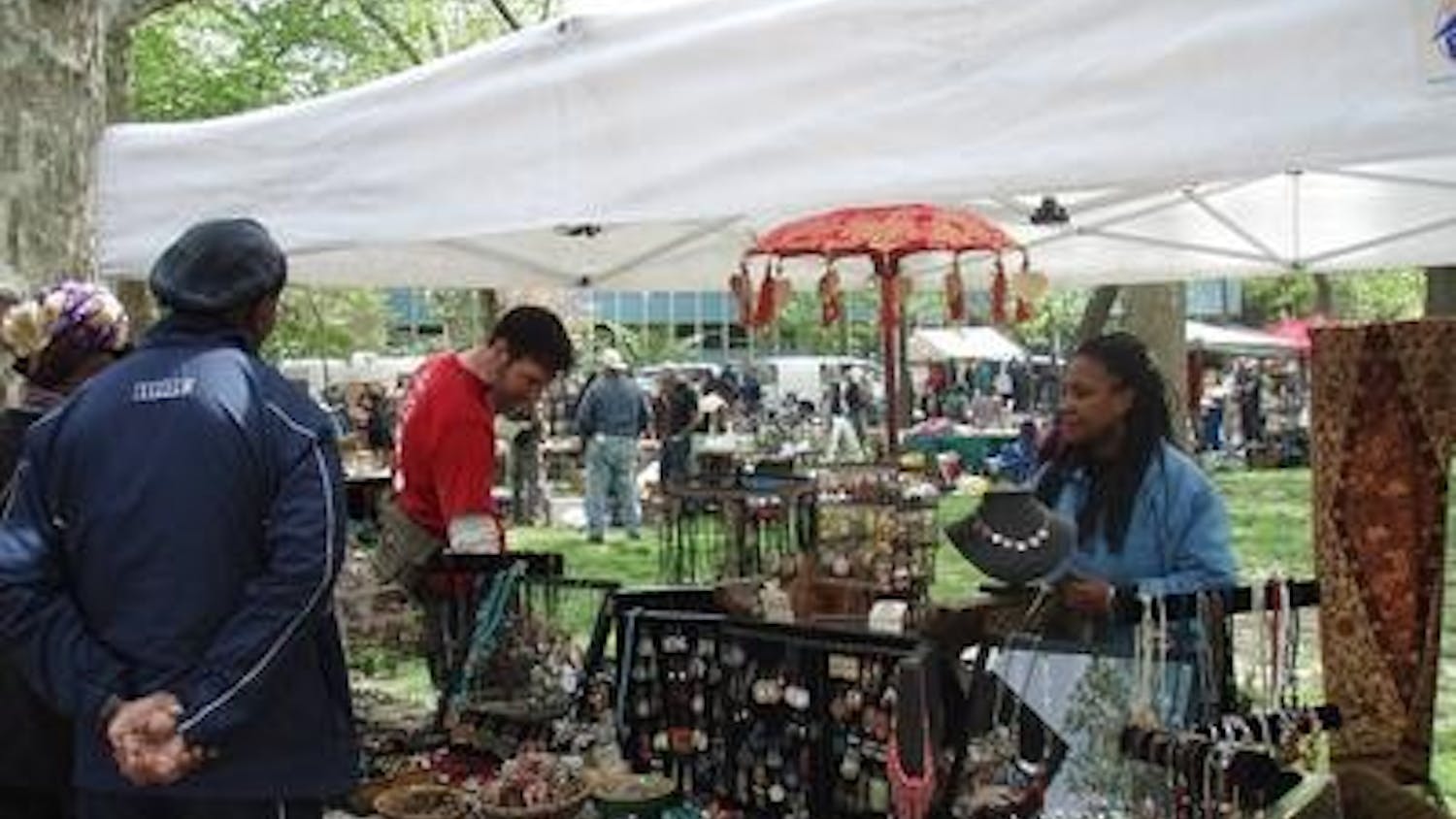Street had the opportunity to chat with Burning Brides frontman Dimitri Coats on the eve of the band's first night opening for Audioslave. Since re-releasing their debut album, Fall of the Plastic Empire, on V2 Records last year, the Brides have steadily grown in popularity through relentless touring while bringing a much-needed attitude to rock music. Are you excited to go on the road with Audioslave? Yeah, the venues are really intense and huge, there's going to be about 4,000 people there. I think the whole tour is sold out. Would you say that Philadelphia needed a band like you? I definitely think it wouldn't hurt the city if we broke out a little bit, because I don't think there's ever been a rock band to do that, on somewhat of a bigger level. There's been some cool bands, but it's not really known as a rock town, so I think it would be great for the city. With many of the bigger music labels consolidating and becoming part of huge conglomerates who aren't necessarily as focused on their music holdings, would you say that the Internet can provide an adequate alternate distribution outlet for independent artists and labels? Yeah, I mean it's an excellent form of communication. I imagine in the future your television is going to be your computer; it's going to be everything. There won't be any more record stores -- there won't be record stores where you buy a new CD. There will still be those antique shops like Record Exchange and places like that where you can buy vinyl and new stuff, but there won't be anymore video stores or places where you rent movies, so it's going to be interesting to see how it changes. It's killing the music industry now -- it's not so much the internet, its people burning stuff. People aren't buying as many records as they used to. What's happening puts pressure on bands -- if you come out and you don't sell, and a label spends a lot of money on you, and they expect you to sell a million records and you only sell 500,000 copies, which is a gold record, you're kind of considered a failure. We're not in this situation because we were careful about what kind of deal we signed and our label isn't like that. It would be nice to sell a million records, but I don't think we necessarily have to. Certainly not with this re-release, no way. I've read a lot of your interviews were you say the danger element is missing from rock music. How do you incorporate that into your music? I just think there's danger in honesty, for one. If you're just coming out and you don't have any pretenses to what you're saying and doing, then that can be intimidating to a lot of people -- that's what The Stooges were all about. You don't have to come out and necessarily be creepy or sip blood or anything, that's all well and good. I just think that people want to see something on the stage that's larger than life and they want to see people get off in whatever way, and to do that you have to be willing to be vulnerable with yourself and be bold, take chances, walk the tightrope and not be afraid of people thinking you're an idiot -- you've gotta to take that chance. That's a dangerous place to be, and a lot of bands aren't willing to do that, they want to play it safe. They want to look like The Strokes and sound like whoever, The Velvet Underground. They want to go with a formula that they know is going to work, and they want to be cool. That doesn't cut it, people can see through that eventually. You've been on the road a lot. Do you have any good road stories you'd like to share? I think we're banned from the Milan Hilton. Melanie and I just went there to do press, and we were there with our label and we were all drunk and stuff and horsing around, and our label guy cracked his head open on a glass table and shattered it and we had to take him to the hospital. Then we had a huge laundry bill -- we didn't realize when we asked them to do our laundry through their service that they would dry clean every piece of laundry we had, like every sock and every pair of underwear. The bill came to the equivalent of $1,000, and we're like, we're not paying for it and we're not paying for the glass table or blood on the floor. So, I think we're done there.
Interview: Burn, Baby, Burn
34th Street is an independent, student-run arts & culture magazine. Please consider making a donation to support the coverage that shapes the University. Your generosity ensures a future of strong journalism at Penn.
Donate





